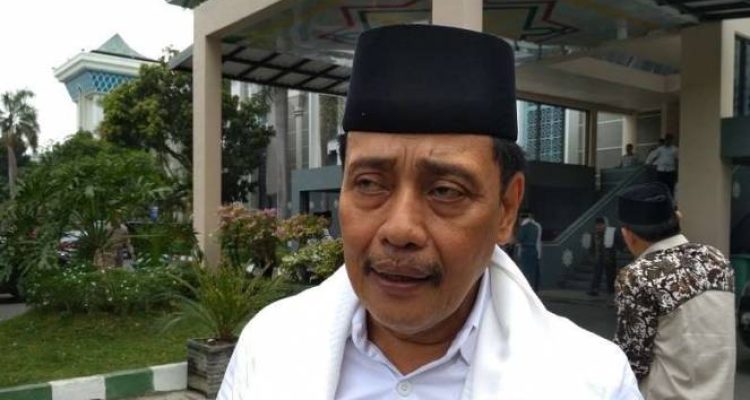Thousands gathered at a state funeral in Tehran for military commanders killed in recent Israeli strikes. Germany's interior minister has made a surprise visit to Israel. DW has more.
Below, you can read a roundup of developments on the status of the ceasefire in theIsrael-Iran warand thewider crisis in the Middle Easton Saturday, June 28:
Thousands of protesters rallied in Tel Aviv on Saturday to demandan end to the Gaza warand to secure the release of the remaining hostages.
It was the first rally by hostages' relatives since Israel agreed to a ceasefire with Iran on June 24.
The regular weekly rally was suspended due to emergency restrictions duringthe war with Iran.
The Israel-Iran ceasefire raised hopes that it would lend momentum to end the Gaza conflict.
"The war with Iranended in an agreement. The war in Gaza must end the same way — with a deal that brings everyone home," said the Hostages and Missing Families Forum, the main group representing hostage families, in a statement to mark the rally.
Police in the UK are reviewing footage of Glastonbury performances by Bob Vylan and Kneecap to assess whether any criminal offenses were committed during their on-stage remarks.
Irish hip-hop group Kneecap led chants of "F*** Keir Starmer" and condemned Israel in front of a large crowd at the music and performing arts festival.
The group has drawn attention in recent months for its pro-Palestinian, anti-Israel stance. One member faces a terrorism charge over allegedly displaying a flag in support ofHezbollahat a show in London last November. The band denied supporting Hezbollah.
"This situation can be quite stressful, but it's minimal compared to what the Palestinian people are [facing]," O'Hanna, wearing his trademark keffiyeh and black sunglasses, told thousands of cheering supporters, many waving Palestinian flags.
Before Kneecap took the stage, rap-punk duo Bob Vylan led the crowd in chants invoking death to the Israel Defense Forces.
The Israeli Embassy in Britain later said it was "deeply disturbed by the inflammatory and hateful rhetoric expressed on stage at the Glastonbury Festival."
German Interior MinisterAlexander Dobrindtunexpectedly visited Israel late on Saturday, with plans to meet with Israeli Prime Minister Benjamin Netanyahu on Sunday.
"Supporting Israel involves holding talks on the ground and getting an idea of the situation," Dobrindt said ahead of the trip.
"I want to show that we support Israel as our closest partner in the fight against terror."
The conservative politician also said he wants Germany to benefit from Israel's military experience.
"Israel is ahead of us, especially in cyber defense and civil protection," Dobrindt said. "We also need to adapt more to new threat situations."
"We will work closely with Israel on this," he added.
In addition to Netanyahu, Dobrindt is also set to meet with Foreign Minister Gideon Saar and Defense Minister Israel Katz on Sunday.
Mediators in Qatar, Washington and Cairo are trying to push Israel and Hamas towards a truce in the Gaza Strip, according to Majed al-Ansari, spokesman forQatar's foreign ministry.
Doha was "trying to use the momentum that was created by the ceasefire between Iran and Israel to restart the talks over Gaza," Ansari told AFP news agency.
"If we don't utilize this window of opportunity and this momentum, it's an opportunity lost amongst many in the near past. We don't want to see that again," the spokesman said.
The Qatari official said it was "not a far-fetched idea" that pressure from Washington could lead to a new truce in Gaza.
Earlier this week, US President Donald Trump saidattacking Iran caused "great progress" in negotiations regarding Gaza.
The two-monthGaza ceasefire that was agreed upon when Trump took office in Januarycollapsed in March. Israel has since intensified its military operations in Gaza.
At least 60 people across theGaza Stripwere killed by Israeli strikes starting late Friday and continuing into Saturday morning, health staff in the Hamas-run Palestinian territory say.
Among them were 12 people killed at the Palestine Stadium in Gaza City, which serves as a shelter for the displaced, and eight more in their apartments, according to staff at Shifa hospital.
Israel's offensive in Gazahas so far killed some 56,000 Palestinians, according to Gaza's Health Ministry, which does not distinguish between civilians and combatants in the figures it provides.
Gaza officials say more than half of the dead are women and children.
Israel launched its attacks in Gaza in response to raids by Hamas-led militants in southern Israel on October 7, 2023, that killed some 1,200 people, mostly civilians. Some 250 hostages were also taken.
Yemen's Iran-backedHouthi militiasaid on Saturday that it had launched a ballistic missile at what it called a "sensitive Israeli site" in the southern Israeli city of Beersheba.
The militia, which controls large parts of northern and western Yemen including the capital, Sanaa, said the attack was in response to Israel's continued military offensive against the Palestinian militant group Hamas in Gaza.
In a statement released by the group's military spokesperson, it said the missile was fired out of "duty toward the oppressed Palestinian people and the heroic Mujahideen in Gaza."
Earlier, the Israeli military announced that air defenses had likely successfully intercepted a missile coming from Yemen.
The Houthis have repeatedly targeted Israel andRed Sea shipping routessince the war in Gaza began in October 2023.
US PresidentDonald Trumpsaid he would "absolutely" order morestrikes on Iranif intelligence indicated that Tehran was still capable of enriching uranium to nuclear-weapons grade.
Speaking at a press conference at the White House, Trump also said Iran's Supreme Leader Ayatollah Ali Khamenei "got beat to hell" in thewar involving Israel and the US, and that the timing of ending it was "great." He expressed anger after the Iranian leader claimed his country had scored a victory over the United States.
Regarding future inspections of Iran's nuclear sites, the US president said he supports inspectors from theInternational Atomic Energy Agency (IAEA)or another respected source being able to inspect nuclear sites in Iran following the bombings by Israel and the US.
Iran's Foreign Minister Abbas Araghchi said that Tehran may reject any request by the IAEA, the UN's nuclear watchdog, to visit the country's nuclear sites, calling the insistence by IAEA head Rafael Grossi to visit nuclear sites in Iran "meaningless, even malign in intent."
This comes after the Iranian parliament voted to suspend any cooperation with the IAEA over its failure to condemn the strikes carried out on various nuclear sites in Iran by Israel and the US.
The situation inGazahas taken on "horrific proportions," according to UN chief Antonio Guterres.
Food aid is scarce, and a lack of formula is putting the lives of newborns at risk.
And the situation in theoccupied West Bankis also increasingly fraught amid violence between Palestinians and Israel settlers.
DW has this video depicting the problems faced by residents of the twoPalestinian territories:
To view this video please enable JavaScript, and consider upgrading to a web browser thatsupports HTML5 video
UN Secretary-GeneralAntonio Guterreson Friday called for an immediate ceasefire between Israel and the Palestinian militant group Hamas, saying the residents of Gaza were facing a humanitarian crisis of "horrific proportions."
Although he said the recent ceasefire between Israel and Iran was a reason for hope, he condemned the fact that residents of Gaza are being killed at aid distribution points.
DW has this article detailing Guterres' appeal:Gaza: Aid plan should not be 'death sentence,' UN chief says
Iran's foreign minister, Abbas Araghchi, has said his country is in principle ready to resume nuclear talks with the US, though he called on US PresidentDonald Trumpto adopt a more conciliatory tone toward the supreme leader of the Islamic Republic, Ayatollah Ali Khamenei.
"If President Trump is genuine about wanting a deal, he should put aside the disrespectful and unacceptable tone towards Iran's Supreme Leader, Grand Ayatollah Khamenei, and stop hurting his millions of heartfelt followers," Araghchi said in a post on X, formerly Twitter. "Good will begets good will, and respect begets respect."
Trump recently said new talks would be held with Tehran next week, but declined to give details.
Talks between Tehran and Washington on Iran's nuclear programover the past few months have not succeeded in bringing about a deal.
They were interrupted after Israeltargeted nuclear facilitiesacross Iran in 12 days of attacks from June 13, amid claims that Tehran is seeking to become a nuclear power.
The US also carried outstrikes on three Iranian nuclear sites on June 22.
The US, Israel and several other Western countries have long feared that Iran might be developing arms under cover of a nuclear program that Tehran insists is for civilian purposes only.
To view this video please enable JavaScript, and consider upgrading to a web browser thatsupports HTML5 video
Thousands of people gathered in the Iranian capital, Tehran, on Saturday as an official funeral ceremony took place for the dozens of generals and others, including journalists and a nuclear scientist, killed inIsraeli strikes.
Among the some 60 people honored were Chief of Staff Mohammed Bagheri, Islamic Revolutionary Guard Corps (IRGC) Commander-in-Chief Hossein Salami and Amir-Ali Hajizadeh, head of the IRGC's aerospace division.
Iranian President Masoud Pezeshkian attended the event, along with other senior government officials and military commanders.
Ali Shamkhani, the senior adviser to Iran's supreme leader, also took part in the ceremony, using a walking cane after being targeted and wounded in the Israeli attacks, state TV showed.
In 12 days of attacks from June 13, Israel killed more than 30 high-ranking military officials, some in their homes.
Of the 60 people who were to be laid to rest after the ceremony, four were children and four were women.
Israel said its attacks on Iran aimed to stop Tehran becoming a nuclear threat to its security.
As a fragile ceasefire betweenIsrael and Irancontinues to hold, a funeral ceremony has been held in the Iranian capital, Tehran, for dozens of senior military officials and others killed in recent Israeli strikes.
Iran's foreign minister has said his country is ready to resume talks on Tehran's nuclear program with the US if PresidentDonald Trump"puts aside his disrespectful and unacceptable tone" toward the Islamic Republic's supreme leader.
UN chiefAntonio Guterreshas meanwhile called for a ceasefire between Israel and the Palestinian militant group Hamas, saying the humanitarian crisis in theGaza Striphas reached "horrific proportions."
You can follow here for the latest news on the ceasefire between Israel and Iran, as well as news, videos and analyses from the wider Middle East region.




